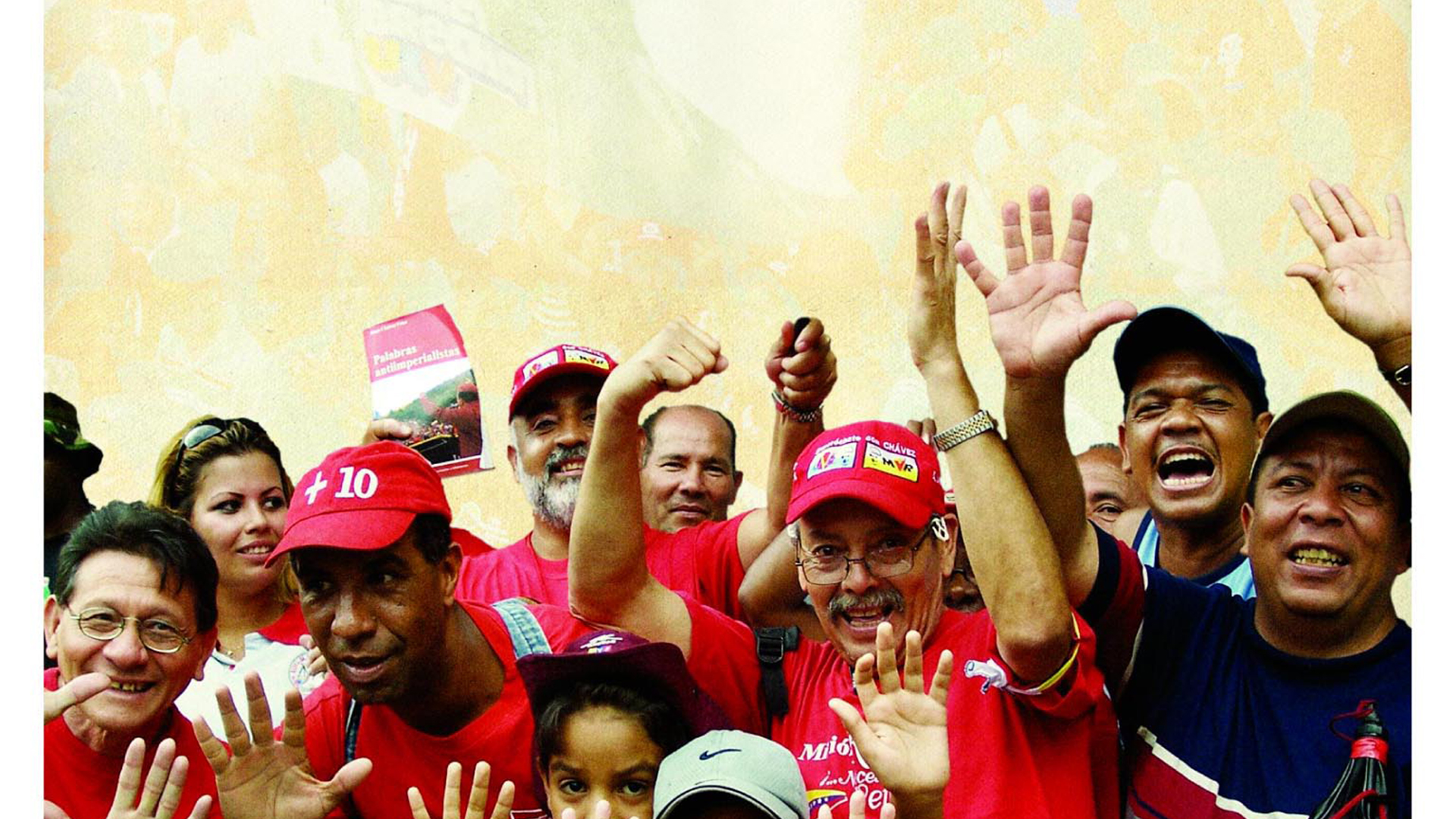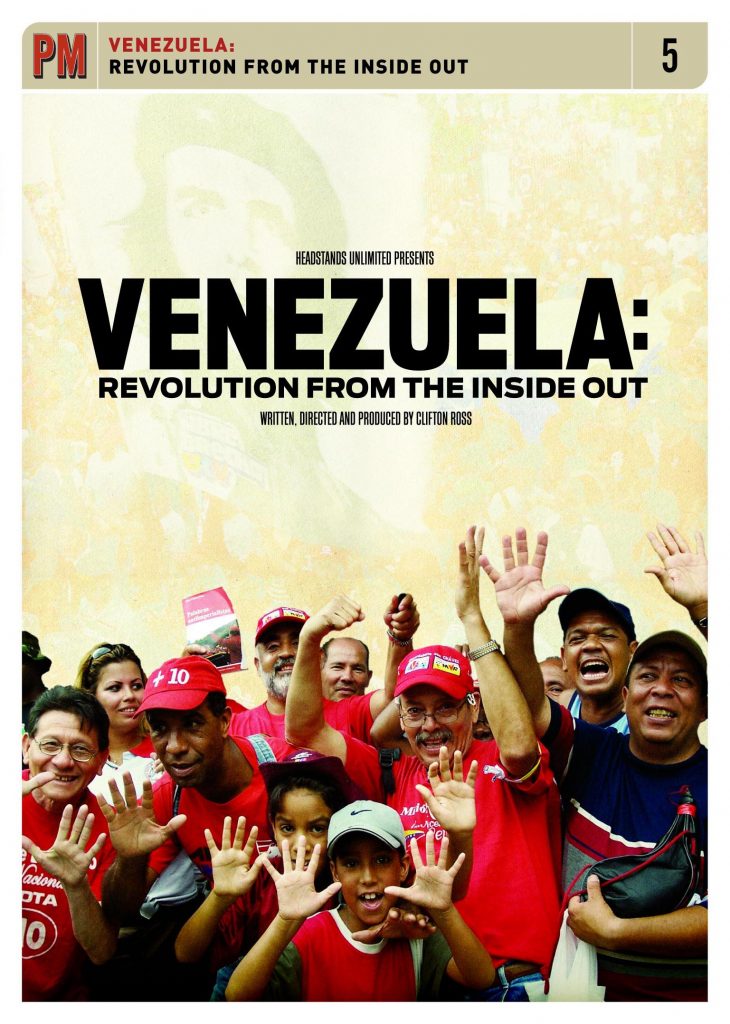By Damian Bramlett and William Armaline (Ph.D.), San Jose State University
Political Media Review
In
the US mainstream, Hugo Chavez is generally seen as a “communist” (a la
North Korea, Cuba, or China), tyrant, or both-often vilified by US news
media and politicians. Further, the Chavez administration is often
painted as illegitimate, particularly in comparison to those elected in
dominant Western “democratic” models-such as the US or much of the EU.
However, Venezuela: Revolution from the Inside Out provides a
more nuanced perspective on Venezuela and a thorough investigation of
modern socialism as now manifested in Central and South America.
California poet Clifton Ross, who is both writer and director of this modest film, provides an outsider’s perspective on Venezuelans in the 21st century and their struggle to change their way of life. Ross splits the film into three parts, with each providing interviews of both native Venezuelans and international scholars. Part one tells the story of Venezuela’s tumultuous past, with a large focus on Chavez’ rise to power. The second part of the film is dedicated to the emergent Venezuelan educational model, based largely on expanding literacy and civic education to all Venezuelan communities. The final act focuses on cooperatives (”lanceros”) and the struggle (of some) for a decentralized socialist political economy and political apparatus.
The dominant historical narrative, newly constructed under the Chavez administration(s) has striking similarities to that of the US: They fought for and won their independence from colonizers; Venezuela was largely shaped by “founding fathers” whose contributions form the “tree of three roots”-now studied in civic educational curriculum; and they experienced civil war that also threatened complete rupture in the 19th century. Contrary to popular belief, current Venezuelan affairs are similar to the US as well: drug wars raging along their borders, indigenous peoples being displaced from their homes via “development”, and a problematic dependency on oil as a finite and ultimately unsustainable resource. However, the Chavez administration and the modern socialist movement more broadly appear in stark contrast to the contemporary US. Recently models of “change” in the US in the face of economic recession and potential collapse have included the bailing out of capitalists, the rescuing of modern finance capitalism from itself, and the election of an African American president. In Venezuela, such change has included a real challenge and alternative to unbridled corporate tyranny (exemplified in the nationalization of Venezuela’s major natural resource industries), and the overwhelmingly democratic-populist election(s) of socialists to positions of high state authority.
Ross does an excellent job at giving outsiders an inside view as to how contemporary Latin American socialism operates and is perceived by its own constituents. He takes to the streets, back alleys, and urban cafes to conduct interviews with those from a variety of socio-economic backgrounds and employment sectors. Ross’ passion for the voices of common working people in Venezuela is apparent in every frame-this is possibly the greatest strength of the film. Although Ross showcases many of the current successes of the “revolucion bonita” in the first two sections of the film, he does not hesitate to explore the problems with establishing a markedly state socialist system in the third. For this reason, the third section is likely the most interesting in terms of the modern socialist project. As has been the case for previous experiments in state socialism, one question for Venezuela is whether or not they can avoid the devolution into bureaucratic dictatorship, and establish political economic models of decentralized community control over resources and decision making.
Where Ross makes some attempt at this critical approach in the third section, at times, Venezuela: Revolution from the Inside Out almost feels like a Hugo Chavez bio-doc rather than a film about democratic social change from below. The filmmakers come off as somewhat (and understandably) enamored with Hugo Chavez–as made apparent in their letter to Chavez–that they fail to fully present some of the potential problems with state socialist models, or the various critiques often levied at the Chavez administration from international sources representing the right or left. This seems like an opportunity lost in an otherwise very thorough presentation of contemporary Venezuelan social and political movements.
In sum, this film is very useful for audiences in the US, particularly with regard to debunking the fallacious assumptions we initially mentioned. Though somewhat uncritical of the Chavez administration, the filmmakers do an excellent job employing the narratives of common working people to describe the history and contemporary form of Venezuelan socialism. This is not simply a good point of methodological practice, but a way of communicating the potential collective movements for vast social change from below in (and potentially against) modern nation-states.







